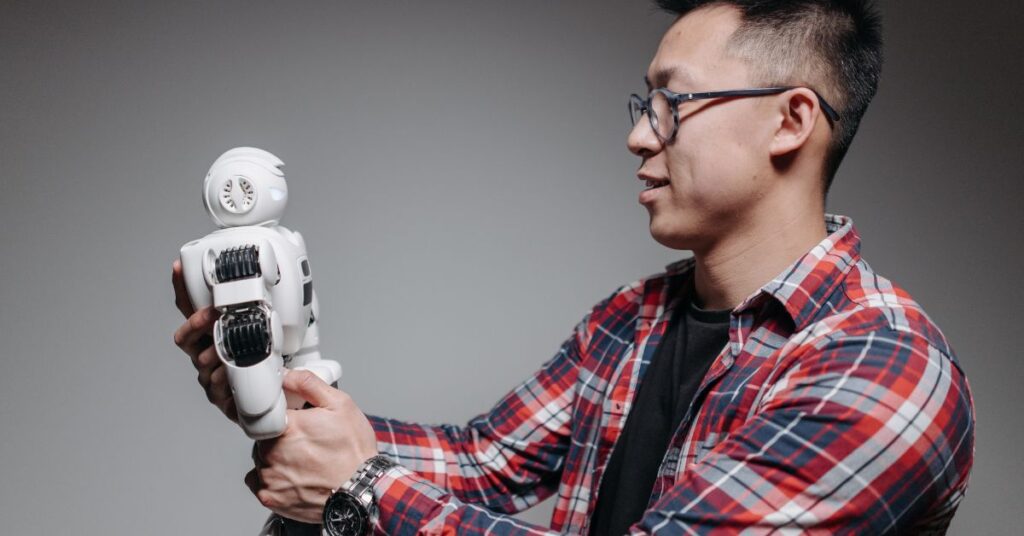By: Bec Harris
Imagine walking on the beach, your dog by your side. A message flashes gently in your eyeglasses: “Can you organise the party?”
With a simple voice command, your smart glasses fetch quotes, make bookings, and let you carry on, hands-free and uninterrupted. This isn’t science fiction, it’s the future of wearable AI, according to futurologist, Professor Rocky Scopelliti.
Beyond the Phone in Your Pocket
According to Rocky, AI-powered glasses could shift how we interact with technology. “Instead of walking around a conference maze, the glasses pinpointed exactly where I wanted to go,” he said.
These devices aren’t just about convenience. They have the potential to replace smartphones, making information available in real-time, directly in your field of vision. Think: language translation on the go, price comparisons in the supermarket, or directions in unfamiliar airports.
Hands-Free Help for All
Smart glasses also have huge potential to assist vulnerable groups. “For the elderly, they can break complex tasks into simpler steps. For people with disabilities, they can project essential information into view,” Rocky explained.
Kids could grow up with smart glasses the same way millennials grew up with smartphones. “Imagine trying on a shirt virtually, or reading recipes while kneading dough. It changes how we live,” Rocky said.
The Privacy Dilemma
But with new tech comes new challenges. Rocky warns, “It’s important to know whether you’re being filmed. Some brands include a light indicator, but most people won’t know what that means.”
There’s also the issue of being constantly connected. If glasses are always on, when do we switch off?
And what about data? “These glasses will collect far more personal data than phones. Companies need to be transparent and ethical in how they use it,” said Rocky.
Are We Ready?
Rocky believes now is the time to ask hard questions. “Let’s not wait for problems to arise, like we did with mobile phones. We need rules for privacy, health, and safety before these become mainstream.”
He added, “We’re talking about glasses now, but eventually, these might become contact lenses. That’s a whole new level of integration.”
Why It’s Worth Getting Excited
Despite the concerns, Rocky sees immense benefits. He summed it up in three key points:
- Invisible Information – “Alerts, directions, and messages will subtly appear when needed, without pulling out a device.”
- Personalised Assistant – “Glance at a plant, and your glasses could tell you its name and care needs.”
- Intuitive Control – “We’ll interact with our digital world by speaking or simply looking.”
As Rocky put it, “We’re right at the beginning of the adoption curve. The glasses will evolve, and so will we.”
AI glasses may soon become as essential as smartphones. But their development must be matched with foresight. Privacy, safety, and ethical questions must guide the technology, not follow it.
Article supplied with thanks to Sonshine.
Feature image: Canva





